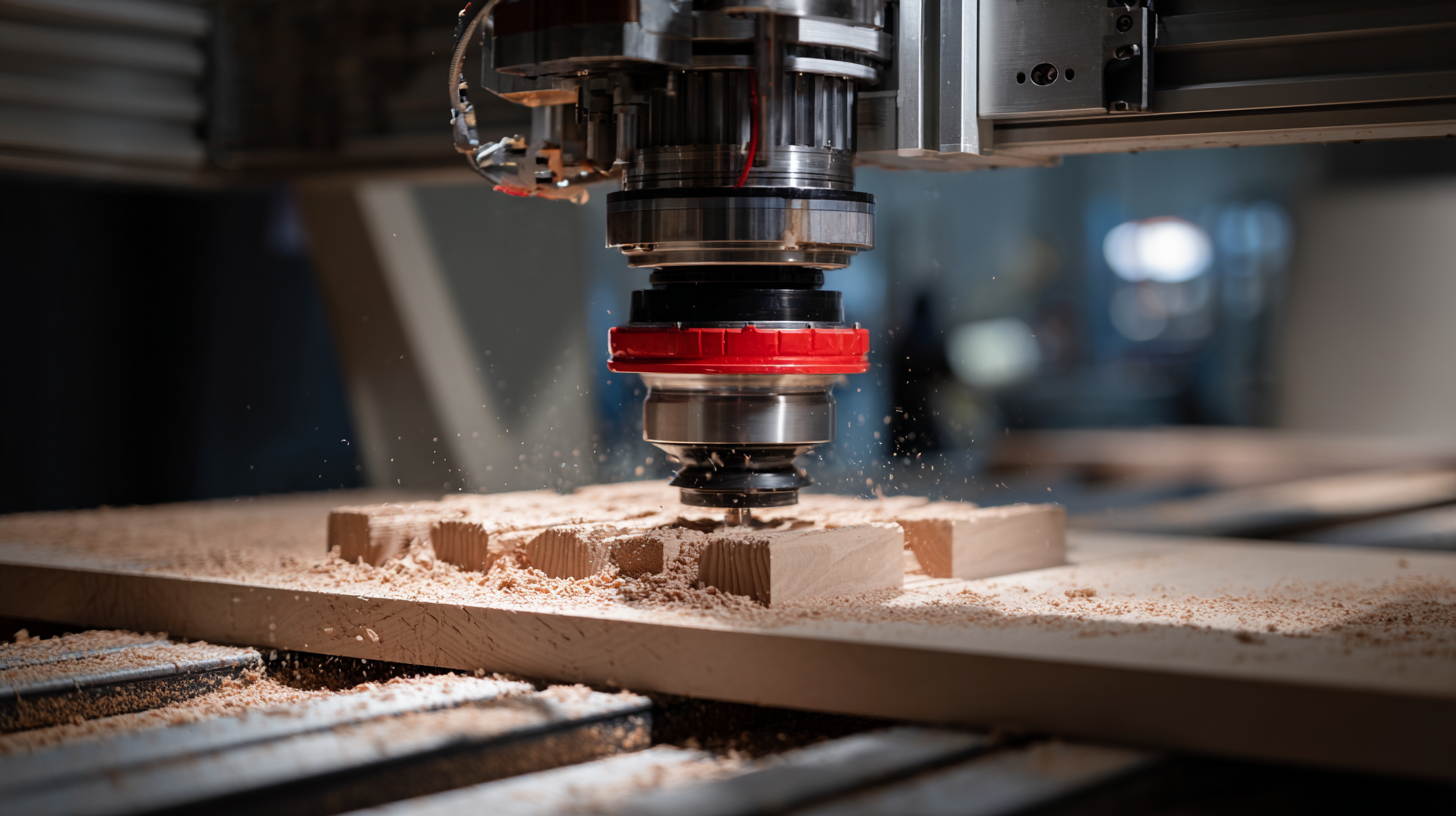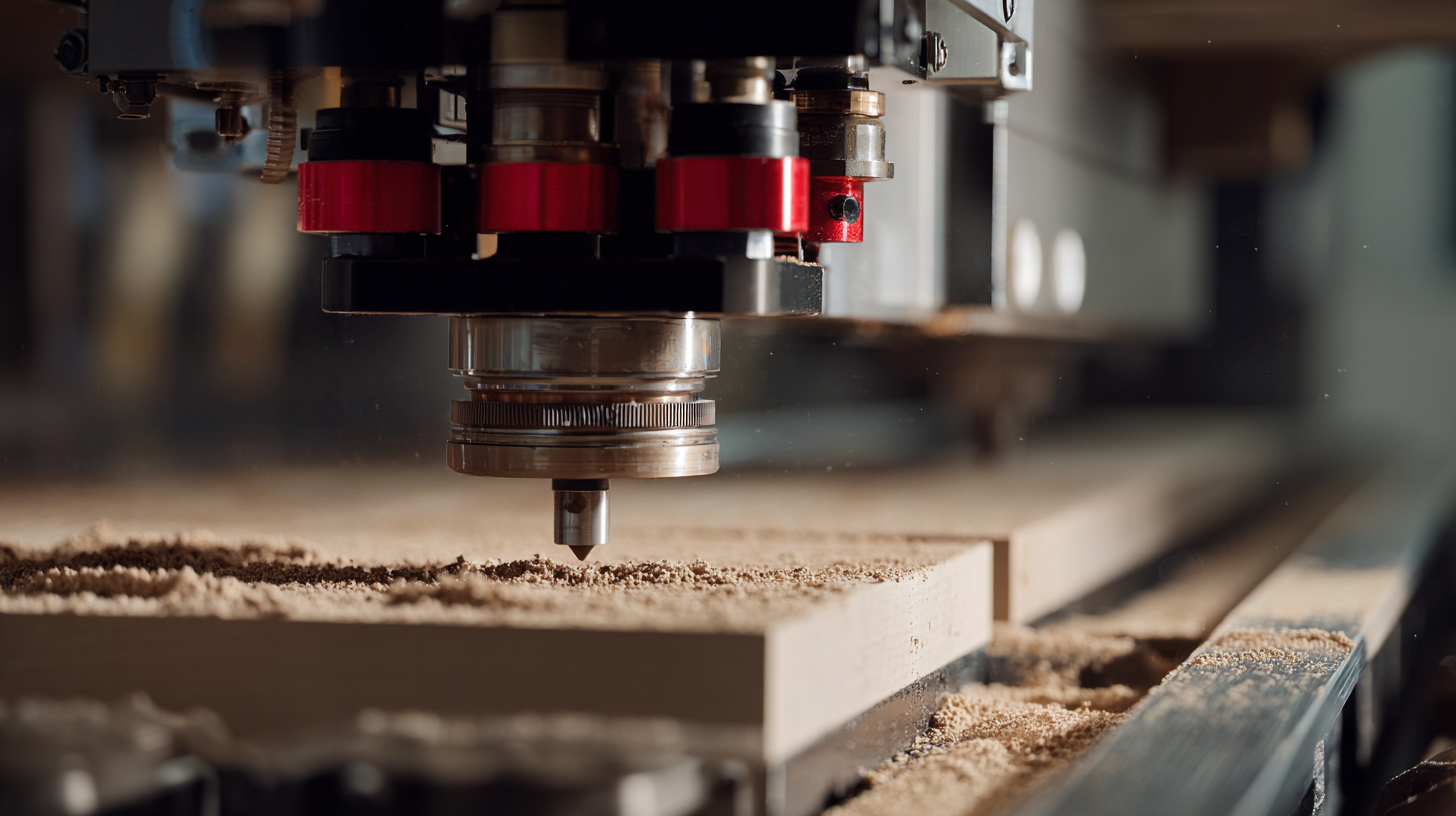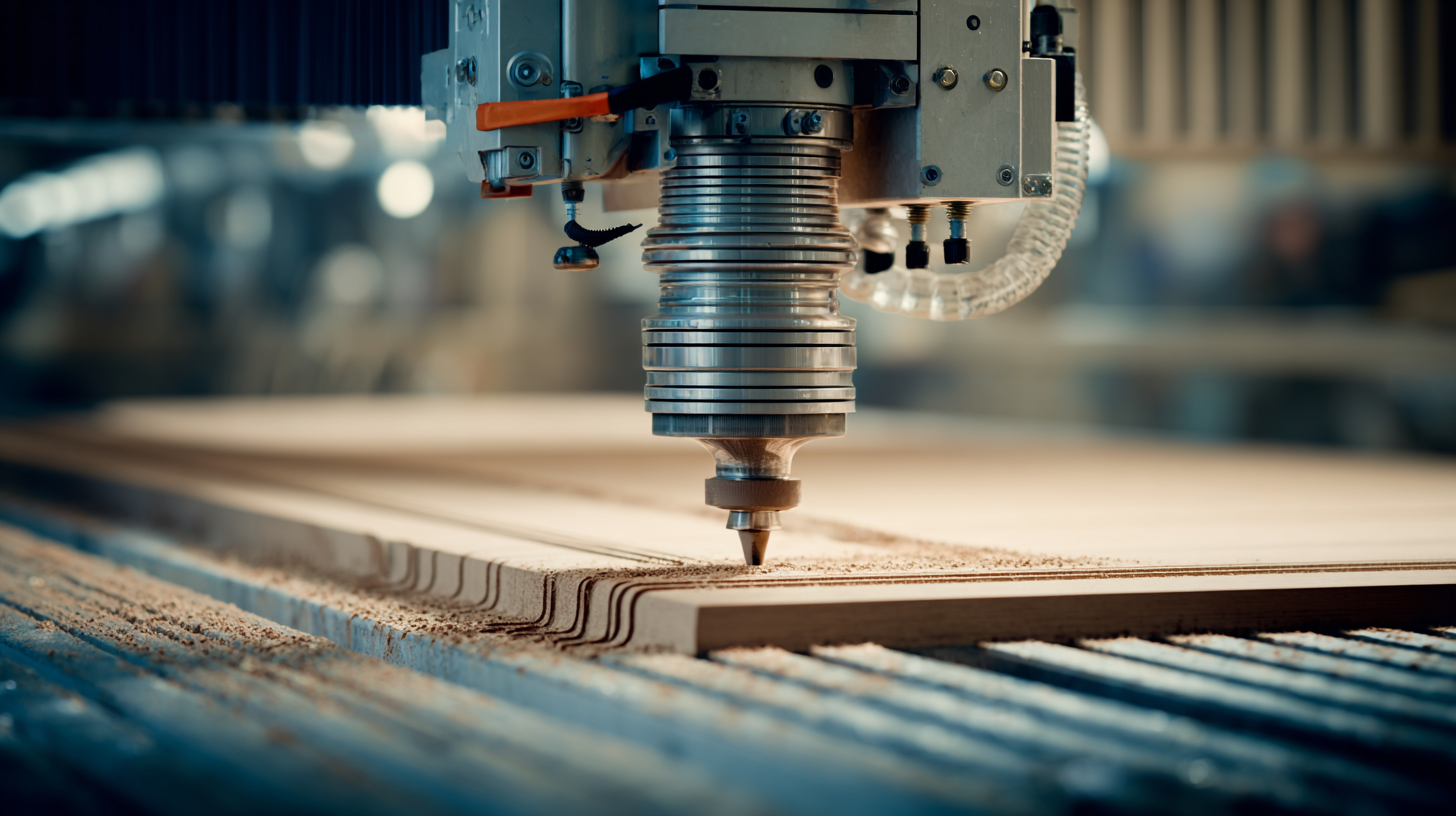2025 Trends in Woodworking: How to Choose the Best CNC Machine for Your Business Growth
As the woodworking industry continues to evolve, staying ahead of the curve in 2025 requires understanding the latest trends and technologies shaping the market. One key element driving this change is the woodworking CNC machine, which offers unparalleled precision, efficiency, and versatility to businesses looking to enhance their production capabilities. Choosing the right CNC machine can significantly impact your growth trajectory, enabling you to streamline operations, reduce waste, and fulfill complex designs that meet customer demands. This blog will explore the benefits of investing in a woodworking CNC machine, how to assess your specific needs, and what features to consider to select the best equipment for your business. By understanding these factors, you will be better equipped to make informed decisions that will set your woodworking enterprise on a path toward sustained growth and success in the competitive landscape ahead.

Understanding the CNC Machine Landscape: Key Features and Technologies to Consider
The woodworking industry is increasingly leaning towards CNC (Computer Numerical Control) machines, which leverage digital technologies to enhance productivity. As of 2023, studies indicate that businesses utilizing modern CNC machinery experience up to a 30% increase in production efficiency. To navigate this evolving landscape, it’s crucial to understand the key features that distinguish CNC machines, such as spindle speed, cutting capabilities, and user-friendly software interfaces.
When choosing the right CNC machine for your business, consider the material types you'll be working with. Different machines excel at handling various materials, from hard woods to composites. A machine with versatile cutting capabilities allows for greater adaptability, making it easier to cater to a wider range of projects.
Tips: Always assess the machine's compatibility with existing design software to streamline your workflow. Additionally, look for machines with robust support and service options, as this can significantly reduce downtime in your operations. Investing time in training for your staff on these machines can further enhance productivity, as operators will be better equipped to optimize the workflows and troubleshoot issues quickly.
Identifying Your Business Needs: Tailoring CNC Machine Selection for Optimal Growth
In the ever-evolving woodworking industry, selecting the right CNC machine is crucial for optimizing business growth. To tailor your CNC machine selection to meet your specific business needs, first assess your production volume and types of projects you typically handle. According to a report by the Woodworking Machinery Industry Association (WMIA), companies that closely align their machinery choices with operational demand can increase efficiency by up to 20%. Understanding whether you're focusing on high-volume mass production or bespoke custom pieces will guide you in choosing a machine that balances speed and precision.
When making your decision, consider the ease of use and training capabilities of the CNC machine. A user-friendly interface can shorten the learning curve for your team, which is essential, especially given that 60% of workers in the woodworking sector report dissatisfaction with training processes, as noted in a survey conducted by the National Association of Woodworkers. Investing in a machine that offers robust support and training resources will help mitigate these challenges.
Tips: Before purchasing, reach out to other businesses in your niche to gather insights on their CNC machine experiences. Additionally, always assess the machine’s compatibility with your existing tools and software to ensure a seamless integration into your current workflow. A well-chosen CNC machine can not only keep production streamlined but also open avenues for new business opportunities and services.

Evaluating CNC Manufacturers: Criteria for Choosing a Reliable Partner
When evaluating CNC manufacturers for your woodworking business, reliability and security should be at the forefront of your decision-making process. With the rise of Industry 4.0, the threat of cybersecurity incidents looms large over CNC machines. Recent assessments of various CNC controllers have revealed vulnerabilities that could compromise the integrity of manufacturing operations. Therefore, it's essential to partner with manufacturers who prioritize not only cutting-edge technology but also robust security measures to protect your investment and operations against potential attacks.
Additionally, while considering the technical specifications and features that a CNC machine offers, it’s vital to evaluate the manufacturer's commitment to sustainability and innovation. As industries strive for greener practices, selecting manufacturers who adopt environmentally friendly processes and materials can align your business with global trends. This compatibility not only enhances your brand’s reputation but also appeals to a growing market of eco-conscious consumers. A meticulous evaluation of these criteria will position your business for growth in an evolving woodworking landscape.
2025 Trends in Woodworking: CNC Machine Selection for Business Growth
Top CNC Machine Types for Woodworking: A Comprehensive Comparison Guide
When it comes to woodworking in 2025, choosing the right CNC machine is paramount for achieving business growth and enhancing productivity. With an array of CNC machine types available, each tailored to different woodworking needs, it’s essential to understand their key features and functionalities. For instance, routers are ideal for intricate designs and detailed cuts, while plasma cutters excel in heavy-duty cutting applications. Understanding your specific requirements is crucial in determining which machine will best support your business operations.
Additionally, laser CNC machines offer remarkable precision for engraving and cutting intricate patterns, making them perfect for custom projects. Conversely, CNC milling machines can handle more substantial materials and are suitable for complex assemblies. By comparing the capabilities of these machines—such as speed, material compatibility, and ease of use—you can equip your workshop with the best technology to boost efficiency and foster creativity. In a competitive woodworking landscape, investing in the right CNC machine is not just a decision of equipment but a strategic move toward sustainable growth and innovation.
Future Trends and Innovations in CNC Technology for Woodworking Businesses
The woodworking industry is rapidly evolving, with significant advancements in CNC technology set to shape the market in the coming years. As the global woodworking machinery market is projected to grow from $5.23 billion in 2025 to $7.88 billion by 2032, businesses are increasingly seeking ways to leverage this growth through innovative machinery. Choosing the right CNC machine is essential for woodworking enterprises looking to boost productivity and efficiency, and understanding future trends is crucial for making informed decisions.

One of the key trends in CNC technology for woodworking is the integration of intelligent automation and AI-driven solutions. These innovations not only streamline operations but also enhance precision and reduce waste, allowing manufacturers to meet the growing demand for customized products. Additionally, advancements in materials and software compatibility are making CNC machines more versatile than ever, enabling businesses to tackle a wider variety of projects while maintaining high-quality standards. Embracing these innovations will be vital for woodworking businesses seeking to thrive in a competitive market.















